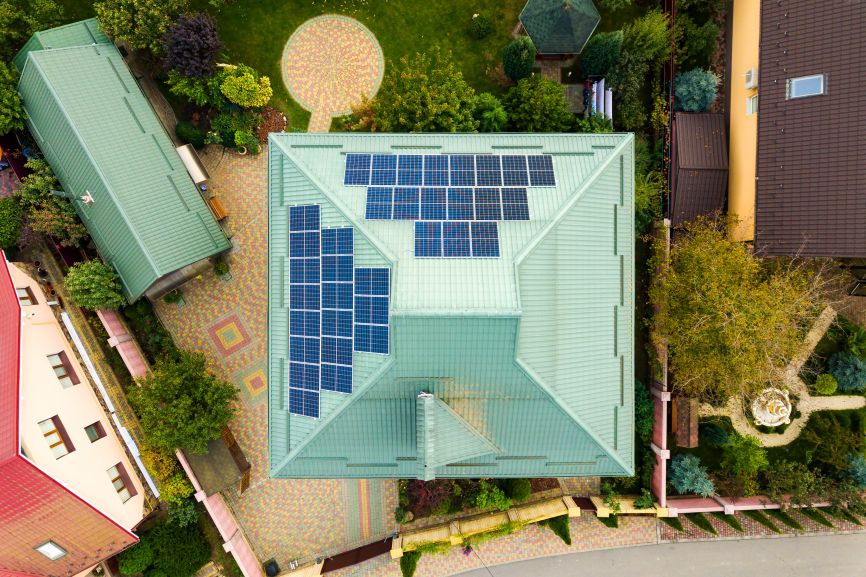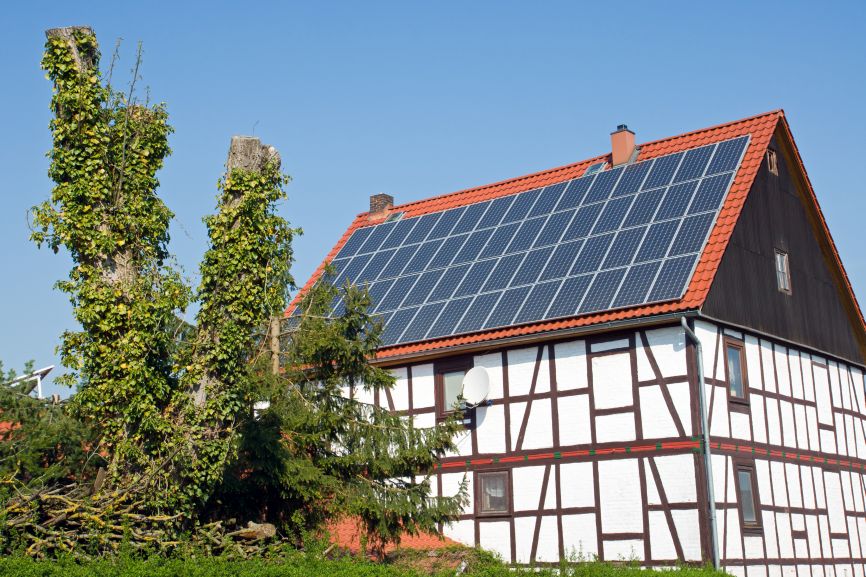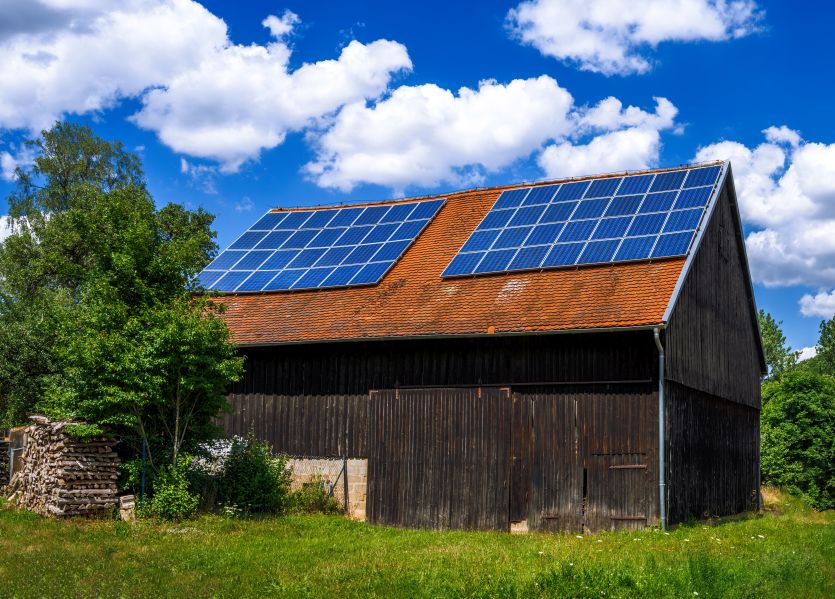How much could you really cut from your bill in Boston, Worcester, Springfield, and beyond?
If you’re a Massachusetts homeowner, you already know your electric bill is higher than most of the country. In fact, the average household pays between $180 and $220 per month in electricity – nearly 40% above the national average. That’s why one of the first questions people ask before going solar is:
“What will my monthly electric bill look like after I install solar panels?”
Here’s the good news: with Massachusetts’ high electricity rates and strong solar incentives, most homeowners see their bills shrink to just $20–$40 per month after going solar. In other words, you’re not just trimming your bill – you’re slashing it by 80–90% every single month.
A Quick Example from Worcester
Take the Lopez family in Worcester. Before solar, their electric bill averaged $205/month – not unusual for a mid-size Massachusetts home. After installing a 7.5kW solar system, their bill dropped to just $32/month. That’s a $2,076 annual savings, money they now use to offset their EV charging costs.
Their story isn’t unique – similar savings are happening every day in Boston, Springfield, Lowell, and across the state. The combination of high utility rates + Massachusetts’ SMART solar program + federal tax credits makes the Bay State one of the best places in the country to go solar.
This article will break down exactly what you can expect:
- Real-world savings for homeowners in Massachusetts cities.
- Average monthly electric bills with solar panels across system sizes.
- How MA compares with other states like California, Texas, and New York.
- Incentives and programs that lower your monthly bill even further.
By the end, you’ll know whether solar is worth it for your home – and how much your monthly bill could realistically drop.

What Is the Average Monthly Electric Bill in Massachusetts Without Solar?
To understand how much solar panels can help, first let’s look at what most homeowners in Massachusetts are currently paying.
Current Electric Rates & Typical Bill in Massachusetts
- As of mid-2025, residential electricity in Massachusetts costs around 29.9 cents per kilowatt-hour (kWh).
- The average monthly residential usage in MA is about 559 kWh.
- That means the typical electric bill for a household in Massachusetts is approximately $165-$170/month under current rates and usage.
So instead of the $180-$220/month ballpark, the most accurate recent data shows ~$165-$170/month is more realistic for many MA households without solar. Differences may still occur based on heating type, energy efficiency, size, etc.
Comparison: Massachusetts vs. National Average
- Nationally, recent data places the average U.S. monthly residential electric bill around $135-$140/month.
- That places Massachusetts about 25–30% higher than the national average in many cases, mainly driven by higher per-kWh rates, colder winters (which drive heating demand), and aging grid/utility costs.
What Drives the Higher Bills in MA?
- High electricity rate per kWh (≈ 30¢/kWh), among the highest in the U.S. for residential customers.
- Seasonal heating (many households use electricity or electric baseboard/heat pumps in winter) which increases kWh usage.
- Less extreme cooling loads compared to, say, southern states—but still electricity use for heating + hot water + lighting + appliances adds up.
- Utility fees, delivery/transmission charges, taxes, etc., which in New England tend to be higher.
For the average household in Massachusetts, this works out to an electric bill of $165–$170 per month. That’s roughly 25–30% higher than the national average of $135–$140 per month.
Average Monthly Electric Bills by City in Massachusetts
| City | Avg. Monthly Usage (kWh) | Avg. Bill Without Solar |
| Boston | ~575 kWh | ~$172/month |
| Worcester | ~560 kWh | ~$168/month |
| Springfield | ~545 kWh | ~$164/month |
| Cambridge | ~550 kWh | ~$165/month |
| Lowell | ~565 kWh | ~$169/month |
| Cape Cod (Barnstable) | ~590 kWh | ~$176/month |
These numbers reflect typical Massachusetts homes. Of course, your actual bill may be higher if you:
- Have a larger home or multiple floors.
- Rely on electric heating during cold winters.
- Run central air conditioning or heat pumps in summer.
- Charge an electric vehicle at home.
The takeaway is simple: without solar, Massachusetts homeowners pay some of the highest monthly electric bills in the country. And that’s exactly why the return on investment for solar is so strong here.

How Solar Panels Reduce the Average Monthly Electric Bill in Massachusetts
So what happens when you switch from paying full retail rates to generating your own clean energy with solar panels? For most Massachusetts homeowners, the difference is dramatic – bills that once averaged $165–$175 each month often shrink to just $20–$40 per month.
Net Metering in Massachusetts
Massachusetts has one of the most solar-friendly policies in the country: net metering. This means that when your solar panels produce more electricity than you use (think sunny summer afternoons), the extra power is sent back to the grid. In return, you earn credits on your account. When your panels produce less (like during winter or at night), those credits offset your consumption. The result: a much lower and more predictable monthly bill.
Seasonal Savings: Summer vs. Winter
- Summer: Long daylight hours mean your panels often generate more than your home uses. Many homeowners see their bills dip to the minimum connection fee in June, July, and August.
- Winter: Even with shorter days and more cloud cover, the credits you banked in summer help offset those colder months when usage climbs.
Utility Rates Matter
Your actual savings also depend on which utility serves your area:
- Eversource (serving Boston and much of eastern MA) has some of the highest rates in the state. Solar offsets these costs the most.
- National Grid (serving Worcester, Springfield, and central MA) also has high residential rates, making solar equally valuable.
- Unitil (serving parts of northern MA) has slightly lower rates, but solar still delivers long-term savings because electricity costs continue to rise.
The New Normal: A $20–$40 Solar Bill
After installing solar, most Massachusetts homeowners no longer see $170+ monthly bills. Instead, they pay a small balance to the utility – usually $20–$40 per month – which covers delivery charges, service fees, and any minor shortfalls in production.
That’s an 80–90% reduction in your electric bill – and unlike cutting back on usage, this is permanent savings backed by the sun and state policy.
City-by-City Breakdown – Solar Savings Across Massachusetts
Every Massachusetts city has its own story when it comes to electricity use and solar adoption. Rates are high everywhere, but local factors – from housing density to coastal weather- can influence how much you save. Here’s a closer look:
| City/Region | Avg. Monthly Bill Without Solar | Avg. Monthly Bill With Solar | Typical Savings % |
| Boston | ~$172/month | ~$28/month | ~84% savings |
| Worcester | ~$168/month | ~$30/month | ~82% savings |
| Springfield | ~$164/month | ~$26/month | ~84% savings |
| Cambridge | ~$165/month | ~$27/month | ~83% savings |
| Lowell | ~$169/month | ~$29/month | ~83% savings |
| Cape Cod & Coastal Towns | ~$176/month | ~$32/month | ~82% savings |
Boston
Boston homeowners face some of the highest utility costs in the state, with Eversource rates regularly topping 30¢/kWh. Dense housing means roof space can be limited, but even smaller systems deliver strong savings. Net metering credits are especially valuable here, often cutting bills by more than 80%.
Worcester
As a mid-size city served largely by National Grid, Worcester homeowners enjoy access to both state incentives and the federal tax credit. Solar systems sized between 6–8 kW are common, trimming average bills from $168 down to around $30.
Springfield
With more available roof space and larger lot sizes, Springfield residents often install slightly bigger solar systems than their eastern-MA counterparts. That extra capacity means they generate more surplus in summer, leading to strong year-round ROI.
Cambridge & Lowell
Both cities have seen growing adoption trends thanks to university communities, energy-conscious homeowners, and aggressive climate goals. Here, solar cuts the average $165–$170 bill down to under $30, proving valuable even for smaller city lots.
Cape Cod & Coastal Towns
On the Cape, average bills run higher due to seasonal homes, electric heating, and older housing stock. Solar panels help offset these costs while net metering credits provide relief during off-season months. With storms and salty air, professional installation and quality hardware are key – but the savings (80%+) remain strong.
Average Monthly Electric Bill with Solar Panels by System Size
Not every Massachusetts home uses electricity the same way. A small apartment in Cambridge doesn’t have the same needs as a large family home in Springfield with an EV in the driveway. That’s why system size matters – and why your monthly bill after going solar can look very different depending on the size of your setup.
4 kW System – Small Apartments & Tiny Homes
- Ideal for condos, townhouses, or smaller homes with limited roof space.
- Typically offsets 50–60% of electric use.
- Average bill drops from ~$150–$160 down to $60–$70/month.
- Works best for households with low-to-moderate consumption and no electric heating.
6–8 kW System – The Massachusetts Sweet Spot
- Perfect for the average single-family home in Boston, Worcester, or Lowell.
- Covers 80–90% of typical household energy needs.
- Average bill drops from ~$170–$200 down to just $25–$35/month.
- Example: A Worcester homeowner with a 7 kW system reduced their bill from $200 to $30/month – saving about $2,000 annually.
10 kW+ System – Larger Homes & EV Charging
- Designed for households with high energy use, larger floor plans, or electric vehicles.
- Often offsets 90–100% of usage, especially when paired with efficient appliances and insulation.
- Bills can fall from ~$220+ to $20–$25/month, often hitting the minimum service charge only.
- A popular choice on the Cape or in suburban areas with bigger roof space and higher demand.
Key takeaway: Whether you’re in a compact apartment or a large family home, solar can shrink your Massachusetts electric bill by thousands per year. The system size just determines how close you get to eliminating it altogether.
What Factors Affect Your Solar Savings in Massachusetts?
Every home is different, which means the savings you see from solar won’t be identical to your neighbor’s. Several factors play into how much you reduce your monthly electric bill:
Roof Orientation & Shading
- A south-facing roof with minimal shading will generate the most power in Massachusetts.
- Trees, chimneys, and nearby buildings can cast shade and lower output.
- Professional installers use tools to measure solar access, ensuring panels are positioned for maximum year-round production.
Energy Usage Patterns
- If you use more electricity during daylight hours, you’ll benefit more directly from solar generation.
- High winter heating loads or summer AC use increase the value of solar since you’re offsetting expensive utility rates.
- Charging an electric vehicle (EV) at home makes solar even more cost-effective by reducing both fuel and electric expenses.
Local Utility Rates & Charges
- Massachusetts utilities like Eversource, National Grid, and Unitil all have slightly different delivery fees and rate structures.
- While per-kWh rates are high across the board (~30¢), time-of-use rates or higher winter surcharges can further increase the value of solar offsets.
- Even after solar, you’ll still see small monthly utility charges ($20–$40) for grid connection and delivery fees.
Incentives & Tax Credits
- Federal Investment Tax Credit (ITC): Homeowners can deduct 30% of the cost of their solar installation from federal taxes.
- Massachusetts SMART Program: Pays solar owners for every kilowatt-hour generated, adding long-term income on top of bill savings.
- State Incentives: Sales and property tax exemptions mean your system doesn’t raise your tax bill, even if it increases home value.
Bottom line: The better your roof orientation, the higher your usage, and the stronger your utility’s rates – the faster your solar investment pays for itself in Massachusetts. Incentives only sweeten the deal.

Massachusetts Solar Incentives That Lower Your Bills Even Further
Massachusetts doesn’t just have high electricity rates – it also has some of the strongest solar incentives in the country. These programs make the transition more affordable upfront and keep lowering your monthly bill for years to come.
Federal Investment Tax Credit (ITC) – 30% Savings
- Homeowners can claim 30% of their solar installation cost as a federal tax credit.
- Example: On a $20,000 system, that’s a $6,000 reduction in your tax liability.
- This incentive lowers the true cost of your system, meaning your monthly savings kick in faster.
Massachusetts SMART Program
- The Solar Massachusetts Renewable Target (SMART) program pays solar owners for every kilowatt-hour of electricity they generate.
- Payments are guaranteed for up to 10 years.
- For many households, SMART credits can add hundreds of dollars in annual income, further shrinking the effective cost of electricity.
State Property & Sales Tax Exemptions
- Sales tax exemption: You don’t pay sales tax on your solar purchase, immediately saving up to 6.25%.
- Property tax exemption: Even though solar increases your home value, the added value is exempt from property taxes.
Local Utility Rebates
- Some utilities, including Eversource and National Grid, periodically offer rebates for solar or battery storage installations.
- These rebates can reduce upfront costs by hundreds of dollars, stacking with state and federal programs.
The result: By combining federal, state, and utility incentives, Massachusetts homeowners can reduce upfront installation costs by 30–40% and enjoy long-term bill credits that make solar one of the most rewarding investments available.
How Do Massachusetts Solar Bills Compare to Other States?
When homeowners ask about the average monthly electricity bill with solar panels by state, the answer varies widely. Utility rates, sunshine hours, and incentive programs all shape how much you save. Here’s how Massachusetts stacks up against some of the nation’s biggest solar markets:
California
- Without solar: ~$150/month average.
- With solar: $20–$35/month.
- California offers abundant sunshine, but savings are similar to Massachusetts because utility rates are high on both coasts.
Texas
- Without solar: ~$135/month average.
- With solar: $25–$40/month.
- Lower rates than Massachusetts mean smaller percentage savings, though high summer usage (AC) creates strong ROI for larger systems.
New York
- Without solar: ~$145/month average.
- With solar: $25–$35/month.
- Similar climate and policy landscape to Massachusetts, but MA’s higher utility rates give it an edge in monthly bill reductions.
Florida
- Without solar: ~$155/month average.
- With solar: $20–$30/month.
- Sunshine State homes often see near-complete offsets, but overall ROI is still close to Massachusetts thanks to consistent solar production.
Why Massachusetts Ranks Among the Top in ROI
Even though Massachusetts isn’t the sunniest state, it consistently delivers some of the best returns on solar investment in the U.S. Why?
- High utility rates (~30¢/kWh): Every kilowatt-hour you generate saves you more money.
- Strong state incentives: SMART program + tax exemptions boost your bottom line.
- Net metering: Lets you use summer credits to lower winter bills.
The takeaway: A Massachusetts homeowner paying $170/month without solar often drops their bill to just $25–$35 with solar – a reduction similar to California or New York, and better than many sunnier states because rates here are so high.
FAQs – Average Monthly Electric Bill with Solar Panels
Do solar panels eliminate my bill completely?
Not entirely. Solar panels can cover 80–100% of your electricity use, but you’ll still see small charges from your utility for grid connection, delivery fees, or any extra power you use beyond what your system produces. For most Massachusetts homeowners, that leaves a $20–$40/month balance.
How long does it take to break even in Massachusetts?
The average payback period for solar in Massachusetts is about 7–9 years, depending on system size, usage, and incentives claimed. Given that panels last 25+ years, most homeowners enjoy 15–18 years of “free” electricity savings after break-even.
What happens if I produce more than I use?
Thanks to net metering, any excess electricity you produce goes back into the grid, and you earn credits on your account. Those credits can be used to offset future bills – especially useful during winter when panels produce less.
Will my bill still include utility connection fees?
Yes. Even if your panels generate all the electricity your home needs, utilities like Eversource, National Grid, and Unitil still charge a basic service fee for maintaining your grid connection. This is why most solar households in Massachusetts continue to see a small monthly bill in the $20–$40 range.
Your Monthly Bill Could Drop by 80–90% with Solar
Massachusetts may not have endless sunshine, but it does have some of the highest electricity rates in the country – which is exactly why solar pays off so well here. Whether you’re in Boston, Worcester, Springfield, Cambridge, Lowell, or the Cape, homeowners consistently cut their bills by 80–90% after installing solar panels.
With programs like the SMART incentive, the 30% federal tax credit, and exemptions that lower upfront costs, Massachusetts is one of the most rewarding states to make the switch. The result? Predictable, affordable bills that drop from $170+ each month to as little as $20–$30.
At First Solar Installers, we connect you with trusted, local Massachusetts solar companies who understand your city’s utility rates, roof conditions, and incentive programs. Instead of shopping around endlessly, you get custom quotes from certified experts ready to design the right system for your home.
Get your free custom solar savings estimate in Boston, Worcester, or anywhere in Massachusetts today – and see how much you could save on your monthly bill.